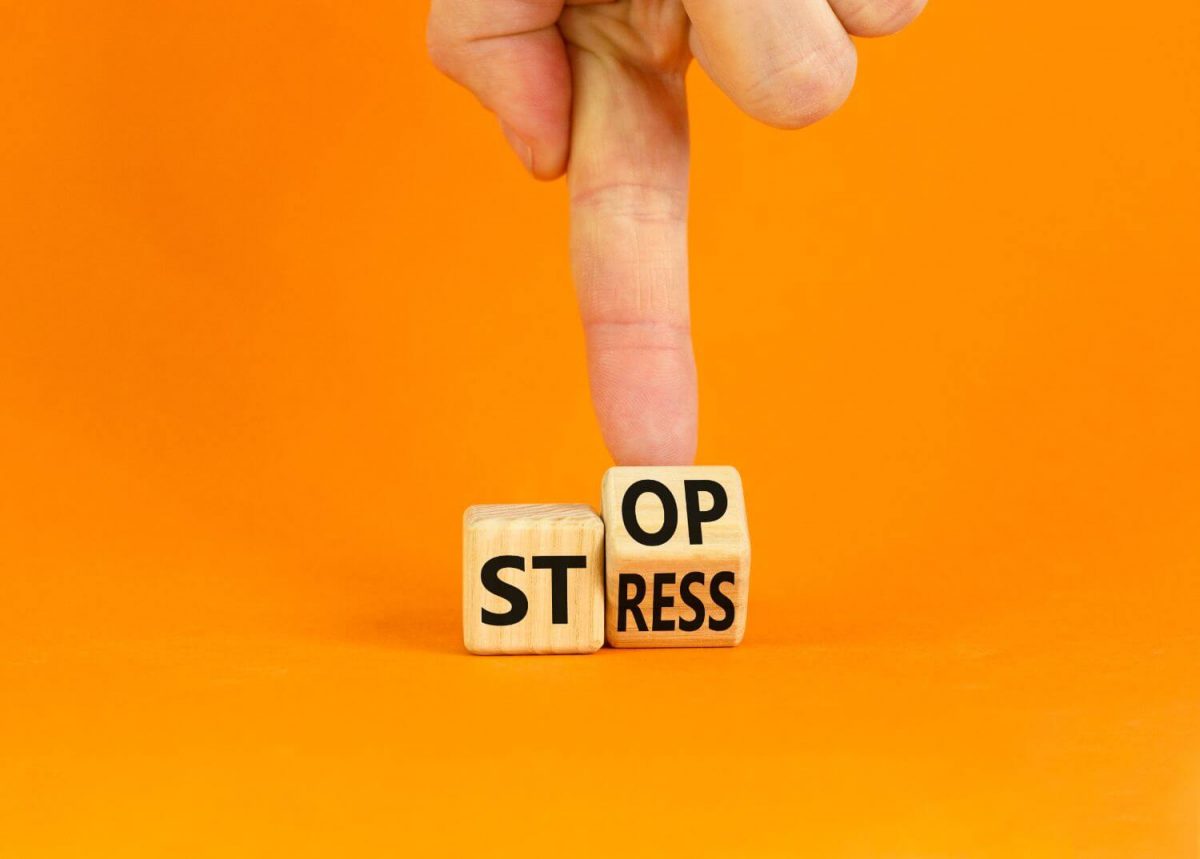The signs can become so routine that you may mistake them as just another part of life.
Living with burnout almost seems normalised in modern culture. People are accustomed to working long hours, having little time for their personal enrichment, and always feeling like there’s something else they need to do.
If left untreated, burnout can lead to various mental health issues, including substance misuse, addiction, depression, and anxiety.
The best burnout recovery stories tend to focus on large-scale, transformative life changes. Almost as if overnight, a person chose to live differently, and their symptoms evaporated.
But not everyone can afford to make such radical life changes. And burnout, at its core, can reflect a series of negative beliefs and behaviours that have compounding effects.
Rather than changing your entire life, you may be able to look within and start making adjustments that ease your stress, treat your depression, and make managing burnout easier.
What is burnout, exactly?

The term “burnout” has become commonplace, especially in our fast-paced, achievement-driven culture.
However, burnout has existed in the world of psychology for decades. Prior to its rise to fame on social media, burnout was a lesser-known term that referred to feeling emotionally drained and unmotivated due to chronic stress.
Today, burnout is seemingly everywhere. It is now officially recognised by the World Health Organization.
Burnout can show up in a person’s life in different ways, but it is marked by feelings of emotional emptiness, ongoing fatigue, lack of motivation, and chronic negativity.
Burnout may be widely used in the context of professional work, but it affects every aspect of someone’s life.
A person suffering from burnout struggles to be emotionally present in any relationship. They may identify their issues but lack the energy to fix them. As a result, their lives often feel as though they’re running on a script.
Every day feels the same, and though they desperately want change, they feel too tired or unmotivated to do anything. Deep down, they may have lost hope that anything they do will make a difference anyway.
If you wonder if you or a loved one are suffering from burnout, some signs to watch out for include:
An increasingly negative, depressed, or pessimistic worldview
Worsened self-image or self-esteem
A loss of motivation
Reduced desire to perform hobbies
Lack of engagement in relationships
Feeling like every day is bad
Feeling as though you make no difference or have no real purpose
A daily schedule that overwhelms you or feels mind-numbingly repetitive
The ongoing effects of burnout can lead people to internalise their frustrations. This can then manifest as shame, guilt, depression, and anxiety. They might turn to substances for distraction, which then only increases their risk of addiction and future depression or anxiety.
Treating burnout at any stage is effective, but you may not know where to begin. The best place to start is by identifying the impacts of burnout on your life.
How Burnout Could Be Affecting You

You may feel like who you “used to be” is a far cry from the person you are now. But that individual is still there. They are just struggling with a difficult period in life that deserves attention and care.
Burnout stems from feeling overwhelmed, which causes someone to ultimately withdraw as a coping mechanism.
Your coping threshold can drastically lower, making you irritable and likely to get angry or upset at things that normally wouldn’t bother you.
Burnout can make everything feel like too much.
If you struggle to find meaning and purpose in your daily life, even routine tasks can feel overwhelming. Work and parenting can feel like burdens, and you may wrestle with a sense of guilt that you aren’t doing enough.
Simultaneously, you can feel as though your efforts are not meaningful and do not have any impact on the world around you.
This can lead to a constant sense of anxiety to do more while also asking, “Why bother?”
Although dramatic life changes can benefit some people, they are not always necessary to recover from burnout. Once you identify and admit that burnout is negatively impacting you, it’s time to look for personalised self-care that reflects what you need the most in life right now.
Small Change Is Still Change
The biggest step anyone can take when recovering from burnout is admitting they need to change.
Their behaviours and coping strategies could be worsening their symptoms. Recognising any unhealthy actions or patterns can lead to long-term, positive results.
Many people need to feel as though they have a sense of control in their own lives.
Burnout often comes from feeling you’ve given too much with nothing in return. For example, you may have poured years of effort into a job, only to feel as though it doesn’t make any difference.
Every person needs to feel seen, heard and validated for their actions and beings. Small changes in everyday life can help you begin to recover this feeling in your own life.
Move Your Body More

Exercise combats negative mental health states by lowering stress and anxiety hormones; it also helps give you a physical sense of purpose through your movement.
Any physical activity that engages the full body is an important part of burnout recovery. This can be gentle exercises, like yoga, or more intensive, like dance or jogging.
Spending time engaging with your body helps you reestablish a connection with yourself. Instead of living in your head, overruled by stress, you can begin to reconnect with who you are.
Exercise can also help improve sleep, which in turn leaves you feeling more energised and capable throughout the day.
Take Up New Hobbies
Even one new activity can infuse your life with a sense of newfound curiosity. The fact that you get to do something you’ve chosen for yourself can reintroduce a sense of agency you may lack.
This hobby should be something that is not based on achievement. Instead, you are doing it out of sheer interest. This could be something artistic, active, or even meditative.
Whatever you are interested in doing, finding ways to make time for yourself and your hobbies can reestablish the balance burnout takes from your life.
Consider Therapy
Cognitive therapy is especially helpful in treating burnout. Therapeutic Programs tailored to treating burnout can also help you address underlying beliefs and behaviours that worsen stress.
If you are dealing with depression, anxiety, substance misuse, or other harmful behaviours, therapy is always there to help.
Therapy also teaches you the importance of self-care beyond the commercialised image portrayed online. Real self-care can be setting boundaries, learning how to say “no”, and not negotiating how you prioritise yourself in your life.
How can you prevent burnout?
Burnout prevention requires awareness, reflection, and resilience. These strategies help people become more capable of identifying burnout symptoms, making positive changes, and staying consistent.
Many people who struggle with burnout find taking a break difficult. They often have perfectionistic tendencies, see themselves in an all-or-nothing light, and have harsh inner critics.
If you struggle to take care of yourself, or you even feel guilty when you aren’t being productive, then you are more likely to overwork yourself. This, in turn, puts you at a much higher risk of burnout.
It’s also important to educate yourself about the signs of burnout and be honest if you experience them.
Modern culture can normalise feeling stressed, unhappy, and rushed to the point people choose to be in their daily lives. But successful people can do their jobs well without feeling constantly overwhelmed, depressed, anxious, or miserable.
By learning what burnout means and how it presents in your life, you become more capable of identifying what you need to prevent it in the future.
White River Manor Treatment for Burnout

A recovery center can be exactly what people need to gain distance from their stress.
Burnout, especially in severe cases, usually requires a period of rest for you to fully recover. So, in addition to small changes, you may consider spending some time in a therapy Program to dedicate yourself fully to healing.
White River Manor hosts clients at a beautiful centre in South Africa. The beautiful weather, invigorating outdoor life, and exciting culture provide the perfect backdrop for a burnout reset.
Recovering from burnout through White River Manor can also help you address other issues, such as depression, alcoholism, and drug dependency, with licensed therapists and medical doctors.
By choosing White River Manor, you get a bespoke treatment plan that reflects your lived experience, mental health, and preferences. We are here to help you heal in the most meaningful ways for you.
In addition to nutrition, mind-body therapy, and personalised treatment, you can bask in the beautiful South African landscape as you rediscover how it feels to live without chronic stress and burnout.
If you would like to learn more about our treatment Programs, please click here.







